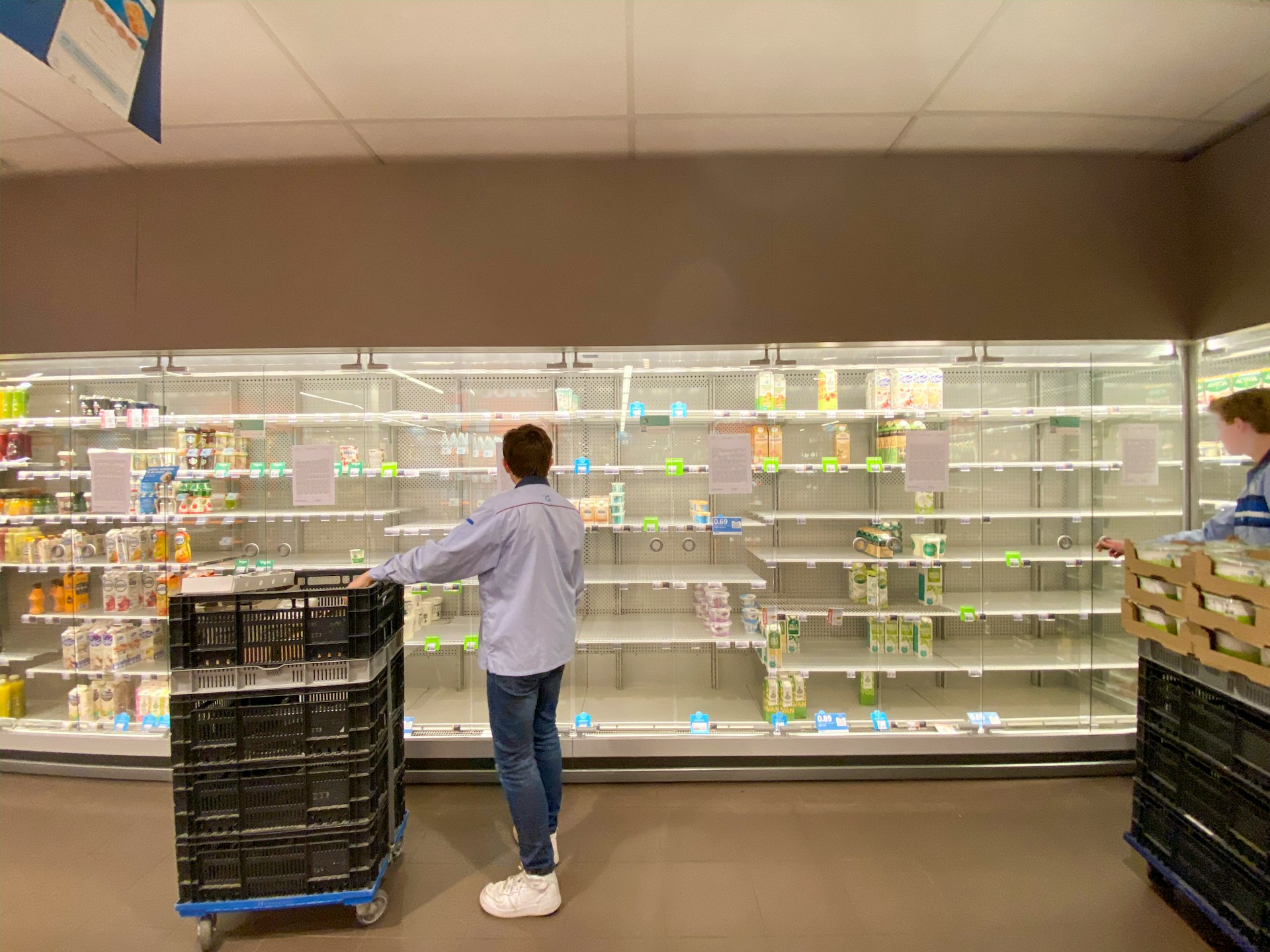Food spoilage is a significant challenge that affects food safety and quality. When food spoils, it not only leads to waste but can also pose severe health risks if consumed. Factors like temperature fluctuations, humidity, and improper storage conditions often contribute to spoilage, making it essential to adopt advanced solutions to tackle the issue effectively.
Smart food storage solutions are revolutionizing how we store and manage food. These innovative technologies provide continuous monitoring and control of storage conditions, ensuring that food remains fresh and safe for longer periods. By using smart storage systems, grocery stores, fast food outlets, and retail food environments can significantly reduce spoilage, enhance food quality, and save costs.
In 2024, the implementation of smart food storage solutions is becoming increasingly important for ensuring food safety. With features like temperature-controlled storage, humidity sensors, and automated alert systems, these technologies offer comprehensive oversight and management of food storage conditions. By understanding the causes of food spoilage and adopting these advanced solutions, we can make significant strides in combating spoilage and maintaining high standards of food safety and quality.
Understanding the Causes of Food Spoilage
Food spoilage occurs when food deteriorates to the point where it is no longer safe or desirable to eat. Several factors contribute to this spoilage, with temperature fluctuations being one of the most significant. When food is stored at the wrong temperature, bacteria and mold can grow more rapidly, leading to spoilage. Keeping food within a safe temperature range is crucial to maintaining its quality and safety.
Humidity is another critical factor. High humidity levels can lead to the growth of mold and mildew, while low humidity can cause foods to dry out and lose freshness. Proper humidity control is essential for preventing these issues, especially in environments where various food types with different moisture requirements are stored together.
Improper storage practices also play a major role in food spoilage. Storing food in unsuitable containers, stacking products incorrectly, or placing food in areas where it is exposed to air and light can accelerate spoilage. Understanding these primary causes helps in devising effective strategies to combat spoilage, ensuring that food remains safe and high-quality.
The impact of spoilage on food safety and quality is profound. Spoiled food can harbor harmful bacteria that cause foodborne illnesses. Consuming such food can lead to serious health issues for individuals. Furthermore, spoilage leads to significant economic losses due to discarded products. Ensuring proper food storage practices can mitigate these risks and maintain both food safety and quality.
Innovative Smart Food Storage Solutions
Combating food spoilage effectively requires the use of innovative smart food storage solutions. Advanced technologies offer robust methods to keep food fresh and safe. One key technology is temperature-controlled storage. This involves using sensors and automated systems to maintain consistent temperatures in refrigerators, freezers, and storage rooms, preventing the temperature fluctuations that often lead to spoilage.
Humidity sensors are another crucial technology. These sensors monitor the moisture levels within storage environments, ensuring that they remain within the optimal range for different types of food. By managing humidity accurately, these sensors help prevent mold growth and preserve the freshness of food items.
Automated alert systems also play a pivotal role. These systems send real-time notifications to staff when storage conditions deviate from set parameters. Whether it’s a temperature spike or a humidity drop, these alerts prompt immediate corrective actions. This rapid response helps prevent spoilage before it occurs, ensuring food safety.
Each of these technologies works together to create an intelligent, interconnected food storage system. Temperature-controlled storage maintains the right environment, humidity sensors provide precise moisture control, and automated alerts ensure that any issues are promptly addressed. By leveraging these smart food storage solutions, food establishments can significantly reduce spoilage, enhance food safety, and maintain high food quality.
Smart Storage Solutions in Different Settings
Smart storage solutions provide immense benefits across various settings, including grocery stores, fast food outlets, and retail food storage environments. In grocery stores, smart storage ensures that perishable goods like fruits, vegetables, dairy, and meats are stored at optimum conditions. With automated systems, grocery stores can avoid the spoilage of products, maintain fresh inventory, and reduce the cost associated with wasted food.
In fast food outlets, where the demand for quick service is high, maintaining the right temperature for cooked and raw ingredients is vital. Fast food temperature automation systems help to ensure that food is stored safely, whether it’s pre-cooked items ready for serving or raw ingredients waiting to be prepared. These smart systems maintain quality and safety, preventing foodborne illnesses and enhancing customer satisfaction.
Retail food storage environments, including convenience stores and specialty food markets, also benefit significantly. Smart storage solutions ensure that different types of food items, each with unique storage requirements, are kept under the right conditions. For instance, wines, cheeses, and packaged goods can all stay in their required environments, preserving their quality and extending their shelf life.
These solutions extend far beyond simple temperature control. By integrating humidity sensors and automated alert systems, different retail environments can maintain high food safety standards. Examples include a grocery store avoiding produce spoilage due to real-time alerts or a fast food restaurant ensuring that cooked items remain within safe serving temperatures. Smart storage helps to maintain food quality across the supply chain.
Steps to Implement Smart Food Storage Solutions
Implementing smart food storage solutions involves several essential steps. The first step is to assess your specific needs and requirements. Understanding what types of food you store and the particular conditions they require will guide your choice of technology. This assessment will help you select the most suitable sensors, storage systems, and monitoring devices.
After selecting the right tools, the installation process starts. It’s crucial to place sensors in locations where they can best monitor storage conditions. For instance, sensors should be installed in various zones of refrigerators and freezers, as well as storage rooms that hold perishable items. Proper placement ensures accurate monitoring and effective control of storage environments.
Training your staff is another key step. Ensure that all team members understand how to operate the smart storage systems, interpret data, and respond to alerts. Regular training programs can help keep everybody up-to-date on the systems’ functionalities and best practices for maintaining food safety.
Maintenance and routine checks are equally important. Establish regular maintenance schedules to inspect sensor function, update software, and review data reports. Consistent upkeep ensures that the systems continue to operate efficiently and provides accurate data for optimal food storage conditions.
Conclusion
Smart food storage solutions are vital for combating spoilage and enhancing food safety. These advanced technologies keep food under optimal conditions, ensuring its freshness and safety. By addressing the primary causes of spoilage, like temperature fluctuations and humidity, smart storage systems significantly reduce waste and maintain high food quality.
The benefits of smart storage solutions are apparent across different food environments. Whether in grocery stores, fast food outlets, or retail food storage, these systems help maintain the right conditions for a diverse range of products. From temperature-controlled storage to humidity sensors and automated alert systems, these solutions ensure that food stays safe and fresh.
Effective implementation involves assessing needs, installing systems correctly, training staff, and regular maintenance. By following these steps, food establishments can fully leverage the advantages of smart storage solutions.
If you’re looking to enhance your food storage practices, explore the advanced solutions offered by Qualified Controls. Our comprehensive temperature monitoring systems are designed to meet the unique needs of your food storage environment, ensuring the highest standards of safety and quality. Contact Qualified Controls today to learn how our smart food storage solutions can benefit your business.


